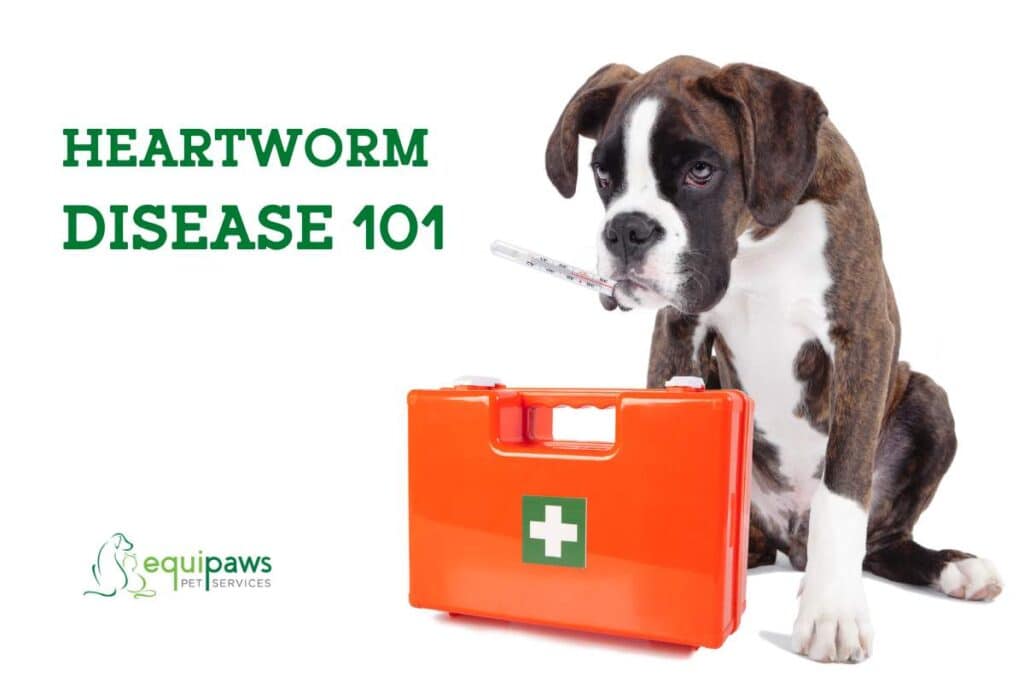Why Your Pets Need Heartworm Prevention Year-Round
We always strive to be the best pet parents for our pets, especially when it comes to their health. One thing that some pet parents often fail to do is keep their pets up to date on heartworm prevention. Heartworm is a severe and potentially fatal disease in pets in Miami and all fifty states. Foot-long worms (heartworms) live in the heart, lungs, and blood vessels, causing severe lung disease, heart failure, and damage to other organs in the body. Heartworm disease affects dogs, cats, and ferrets. Heartworms are transmitted through mosquitoes, and our pets face a significant risk in Florida, where mosquitoes are a year-round problem.
Urgency is key when it comes to heartworm prevention for your pets. Ensuring they are on a preventative plan and tested for heartworm disease annually is not just important, it’s crucial. Even a single month of missed prevention can leave your pet vulnerable to this potentially fatal and painful disease.
What happens when a pet gets heartworm disease?
A dog, cat, or ferret can become infected from the bite of a single mosquito, and it can take about six months for symptoms to show. The resulting heartworm disease can cause life-long damage, but it is preventable with medication.
Signs of Heartworm Disease in Dogs
Early symptoms of heartworm disease in dogs include a persistent, mild cough, reluctance to exercise, fatigue after even moderate activity, reduced appetite, and weight loss. Advanced symptoms include heart failure, often seen as a swollen belly due to fluid buildup in the abdomen. According to the Heartworm Society, dogs with many heartworms can develop a severe blockage of blood flow in the heart, a life-threatening condition known as caval syndrome. Symptoms include sudden labored breathing, pale gums, and dark or coffee-colored urine. “Immediate surgical removal of the heartworm blockage is critical for survival, as few dogs recover without it.”
Signs of Heartworm Disease in Cats
Heartworm disease can present in cats with these symptoms:
- coughing
- asthma-like episodes
- occasional vomiting
- reduced appetite
- and weight loss.
Some cats may have difficulty walking, experience fainting or seizures, or develop fluid buildup in the abdomen. Unfortunately, the first signs of heartworm in some cats can be death.
If these symptoms occur and your pet is not on prevention, it is essential to get your pet seen by your veterinarian to test for heartworm. On top of being very painful, treating heartworm infections and killing the adult worms that infect the dog’s heart, lungs, and arteries can be quite expensive and require months of treatment and many vet visits. During treatment, pets must be kept quiet and avoid exercise, which can be tough for some breeds. A heartworm diagnosis can lead to hospitalization, another considerable expense, so having your pets on prevention year-round would be less expensive than treatment.
What kind of heartworm prevention is best for my pet?
Damage from heartworm can be permanent, so preventive medication is always your best bet. There are many different types of prevention on the market, whether oral or liquid. Some commonly used prevention methods are Simparica Trio, Heartgard, and Interceptor. When choosing the proper prevention for your pet, always do your research and consult with your veterinarian to see what kind of prevention will suit your pet’s lifestyle. Please note that there are no “natural” ways to prevent heartworms. Always consult your veterinarian, and don’t gamble with your pup’s health.
Regular veterinary check-ups are not just a formality but a crucial part of your pet’s health plan. These visits allow your veterinarian to monitor your pet’s overall health, conduct heartworm testing, and ensure that your preventative plan is on track. Early detection can make all the difference if a problem arises.
Always give your pets heartworm preventative!
We can’t overstate the importance of year-round heartworm prevention. The risks of heartworm disease are real and potentially devastating, but the good news is that it’s preventable. By keeping your pet on a regular heartworm preventative plan, you’re taking proactive steps to ensure their health and happiness for years. Don’t wait for the weather to warm up—start your heartworm prevention today and give your furry family the protection they deserve!
We’re always ready to help with your pet’s care- from dog walks to questions like this about heartworm. Please reach out to us if you need more help or recommendations for veterinarians in your area.



